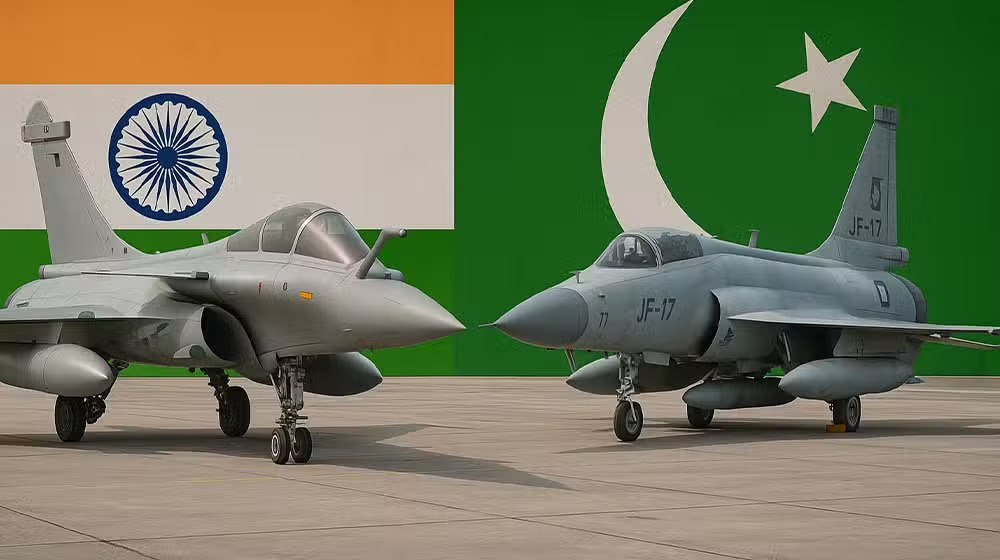
The latest military standoff between Pakistan and India didn’t end at the border — its impact echoed across international stock markets. As Pakistan’s JF-17 Thunder and J-10C fighter jets gained global praise for their role in intercepting Indian aircraft, shares of their Chinese manufacturer surged.
Meanwhile, the French aerospace firm Dassault Aviation, maker of India’s prized Rafale jets, saw a sharp decline.
The clash unfolded overnight on May 6–7, when India reportedly launched missile strikes on five Pakistani targets. In response, the Pakistan Air Force (PAF) mounted a swift counteroffensive, shooting down six Indian fighter jets and seven drones.
Also Read: Police Rescue Two Kidnap Victims in Mardan and Nowshera; Key Suspect Arrested
Notably, three of the downed aircraft were Rafales — considered the centerpiece of India's air combat fleet.
Touted for their cutting-edge design and advanced capabilities, the Rafales were expected to provide India with a technological edge. However, their neutralization by Pakistani air defenses has cast doubt on their battlefield invincibility. Defense analysts now argue that agility, strategic precision, and operational readiness outweigh mere technological sophistication.
Global markets quickly reacted. Dassault Aviation’s stock dropped by 6%, erasing recent gains, while Chengdu Aircraft Corporation, the Chinese aerospace company behind the JF-17 and J-10C, saw an 18.18% surge in share value. Analysts attribute the uptick to increased confidence in Pakistan’s combat platforms, which are increasingly being recognized as cost-effective and battle-proven.
“Performance in real combat matters far more than theoretical specs,” one defense analyst commented. “Pakistan has demonstrated that integration of reliable platforms with smart strategy can level the playing field against more expensive systems.”
Pakistan currently operates 168 JF-17 jets, jointly produced with China, and 25 J-10C aircraft, which were inducted specifically to counterbalance India's Rafale advantage. These aircraft were instrumental in the recent air engagement, according to military sources.
Footage of destroyed Indian positions was released by Pakistan’s military media wing, ISPR, during an official briefing. The spokesperson reaffirmed that Pakistan's response was a measured, defensive action in retaliation to unprovoked aggression. Islamabad, they emphasized, continues to reserve the right to respond decisively if provoked further.
Beyond the battlefield, the economic ripple effects of the confrontation are clear — investors are responding to more than geopolitics. In this case, air dominance appears to have translated directly into financial momentum.